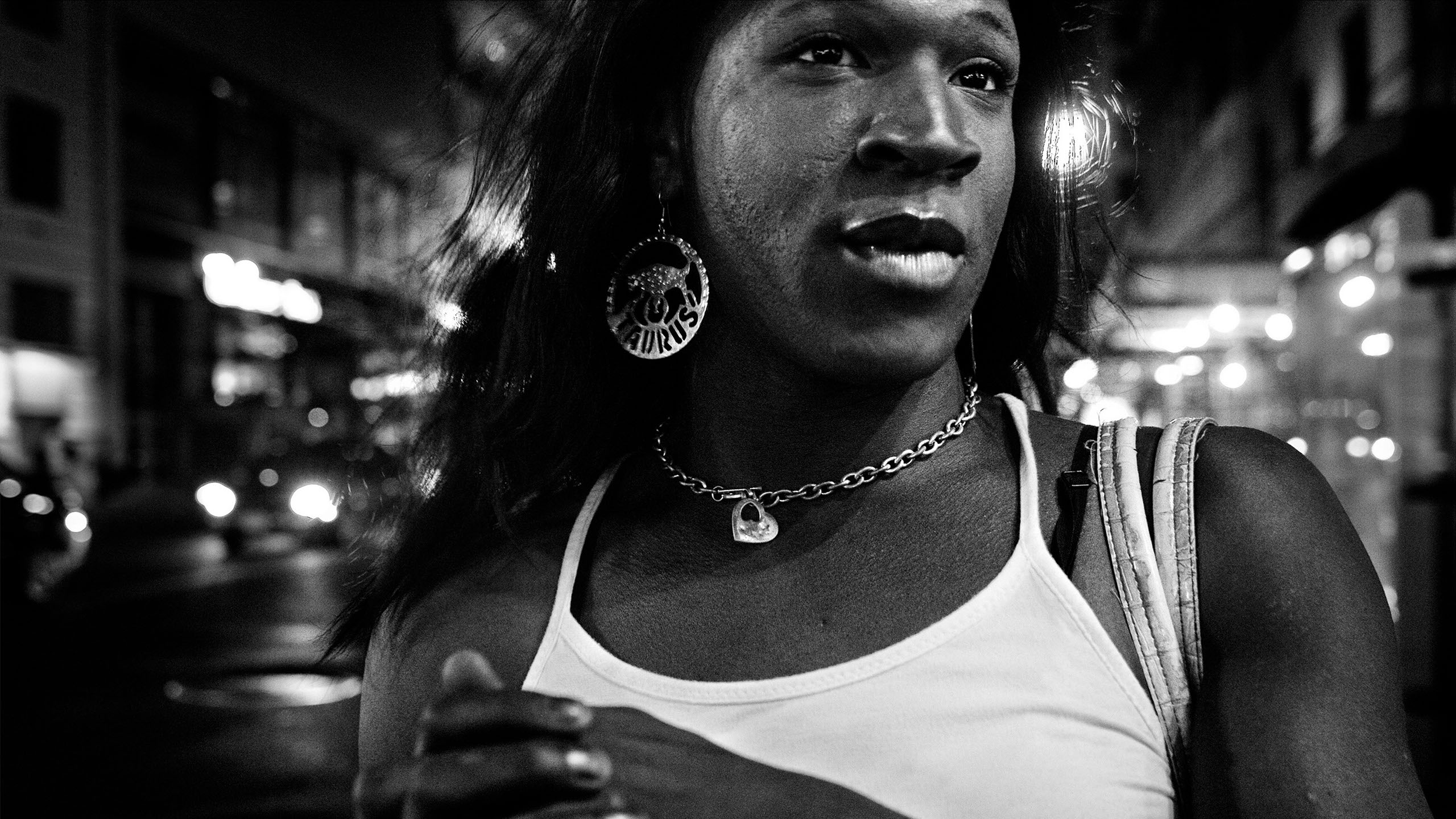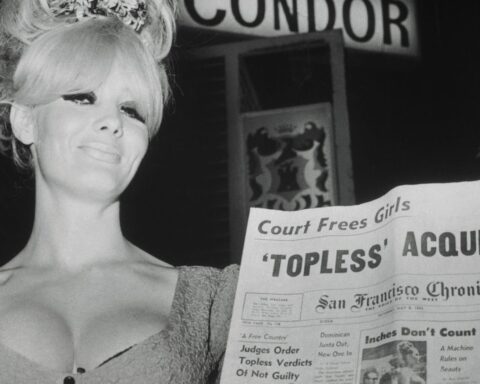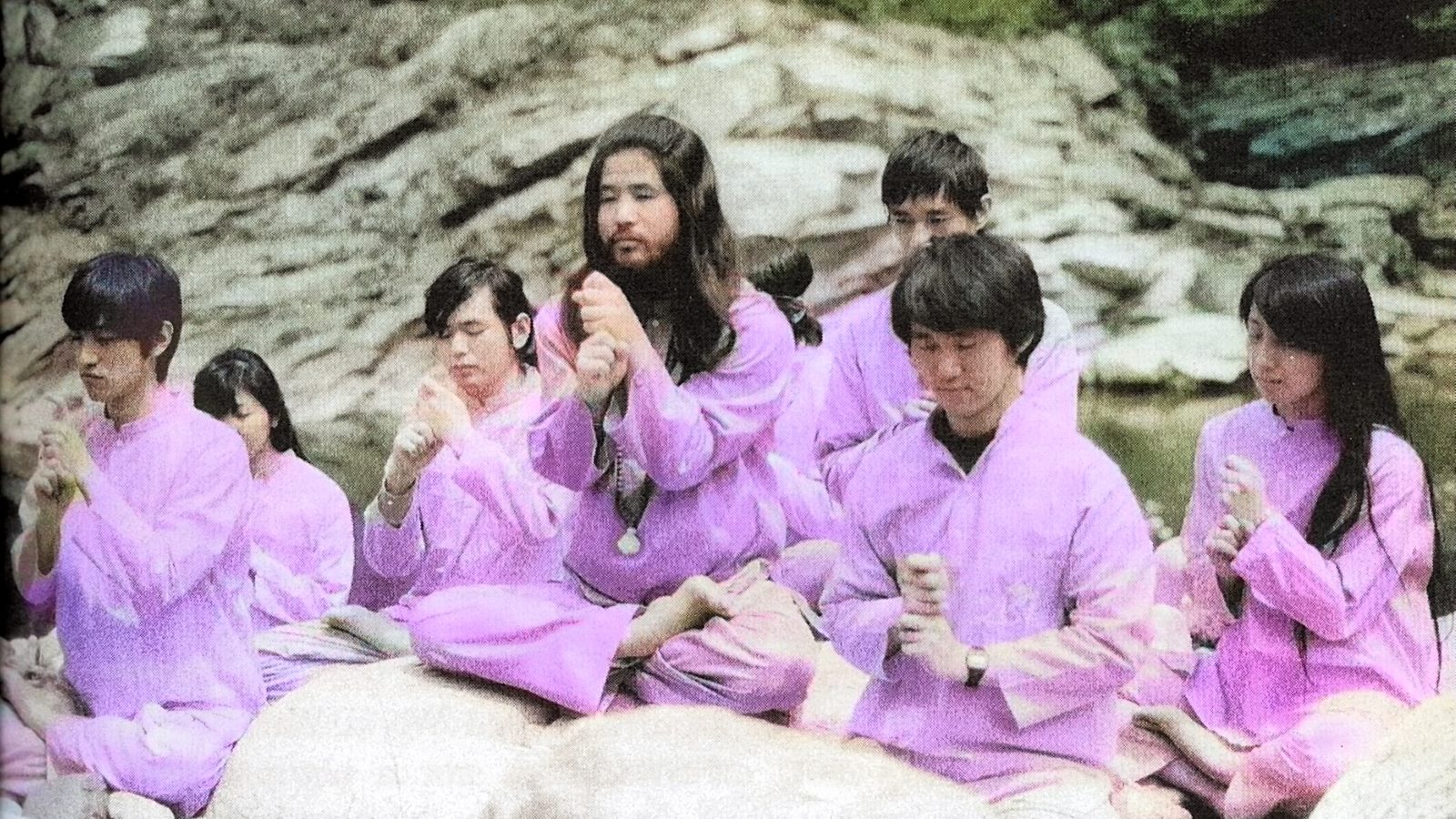The Stroll
(USA, 84 min.
Dir. Kristen Lovell, Zackary Drucker
Programme: U.S. Documentary Competition (World Premiere)
Take a stroll down 14th Street in New York City, walking west from 9th Avenue to the water. This strip once reeked of flesh and blood. Take a sniff and it maybe still does. This thoroughfare cutting through New York’s Meatpacking District, however, calls itself The Stroll. It’s a strip where New Yorkers looking for meat, so to speak, could wander after hours for relief and pleasure.
The Stroll, moreover, owns its place in history particularly as a stomping ground for Black trans sex workers. Their stories, and the tale of the strip itself, fuel the engaging documentary The Stroll. The film marks a notable advancement for personal storytelling as director Kristen Lovell draws upon her own experience walking The Stroll years ago. Moreover, Lovell opens The Stroll by reflecting upon her participation in a documentary about sex work that misrepresented her story. She makes a corrective by giving the story its due as told by the transwomen whose histories echo throughout bricks and alleyways of this gentrifying space of the city. This talking heads doc invites audiences to learn the history of The Stroll through the voices of those who lived it.
These stories echo tales in fellow Sundance documentary KOKOMO CITY, D. Smith’s portrait of four Black transwomen and their experience with sex work. However, the two films take different approaches as The Stroll has more polish while KOKOMO CITY has more swagger. Like KOKOMO CITY, though, The Stroll is a piece of vital storytelling. It creates a safe, open, and ultimately cathartic space to share trans history from trans perspectives.
Creating an Open Environment
Working with actor Zackary Drucker on directing, Lovell takes a candid approach to her subjects. The Stroll borrows a style from Framing Agnes in which Drucker appeared by foregrounding the filmmaking process amid the interviews. Lovell often appears on camera and forgoes the formality of conventional interview styles that place an air of authority on the unseen off-camera inquisitor. Instead, the film takes a cue from Framing Agnes’s consideration of the power dynamics of interviews. The back-and-forth between Lovell and her subjects are conversations, rather than Q & A sessions. The Stroll reflects a sense of comfort and trust between the filmmakers and their participations. As a result, the stories are open, candid, and reflective. The ease of the environment is refreshingly productive. It lends itself well to the film’s open, judgment-free portrait of sex work.
Interviewees like Cheyenne, Egyptt, Lady P, and Nicole chart three decades of history on The Stroll. The film acknowledges the duration of each subject’s tenure on the strip. Experience ranges from 1980 to 2010, so the film captures not only a range of New York’s history, but also LGBTQ history during tumultuous years that included the AIDS crisis, Mike Bloomberg’s strident crackdown on crime, and 9/11.
However, the participants look back not in anger, nor with rose coloured glasses. These accounts are matter of fact: one simply had to do sex work because no other options existed for people who were visibly trans at the time.
Through archives, interviews, and animation, the film offers a vivid sense of place. One can practically smell the odour of the butcheries as the interviewees recall meat markets slick with blood. There’s also a clear picture of The Stroll as a dark, dangerous place. Interviewees share how johns and cops alike shrouded the strip under constant threat of violence.
Walking While Trans
The film ultimately opens the conversation to a larger portrait of living while trans. Lovell shares a telling archival clip that illustrates how Black transwomen, particularly sex workers, were portrayed and perceived. It’s a snippet from RuPaul’s early days. The reigning drag queen strolls the strip with her camera to show audiences the working women of the ’hood. One can sense RuPaul’s good intentions, but Lovell raises her eyebrows at the flippant attitude. Rather than interrogate the systems that force transwomen into sex work, the dated clip is all fun and games.
Similarly, Lovell and Drucker expand the conversation to consider the violence Black transwomen face daily. The interviewees look back at the 2000 murder of sex worker Amanda Milan, who was harassed and killed while hailing a cab. The film considers the effort to mobilize for trans rights and rights for sex workers that grew from tragedy. Activists like Sylvia Rivera receive credit for fighting to connect generations of the LGBTQ community in a united front. Images from 2020 pepper The Stroll, though, and underscore the work to be done.
The Stroll ultimately thrives from the hopefulness and spirit of its subjects. Their emotional accounts testify to the challenge of being treated as less than second class. Moreover, as the subjects step away from the interview chairs and tour the gentrifying meatpacking district, The Stroll captures the prevailing attitude towards trans history. Mainstream society just covers it up. The gentrification of The Stroll echoes the violence the characters faced when residents of the neighbourhood incited moral panics. Rather than address systemic issues, they harassed them in campaigns to “clean up the streets.” Lovell and company observe the same ethos in the city’s erasure of history. This film ensures that voices from The Stroll won’t be lost.













